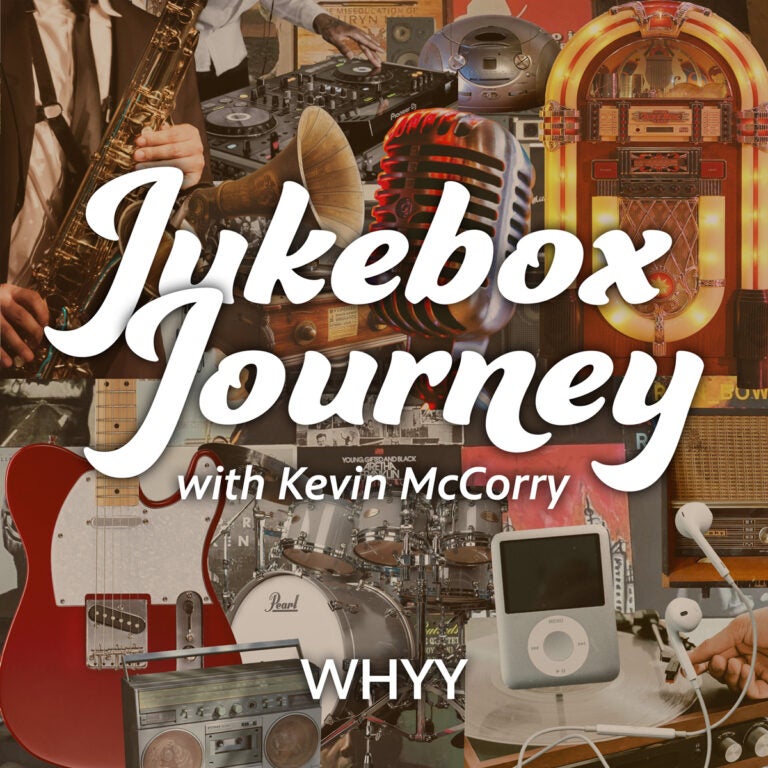KEVIN McCORRY, HOST: I’m Kevin McCorry and this is ‘Jukebox Journey.’
[MUSIC MONTAGE: “Don’t Speak” by No Doubt, “Enjoy the Silence” by Depeche Mode, “The Sound of Silence” by Simon & Garfunkel]
KM: We’re unstuck in time, jumping through decades and genres, meditating on a theme.
This week: Songs they don’t want you to hear.
[MUSIC: “Express Yourself” by N.W.A.]
From 1988, N.W.A.
Censorship comes in a few key forms. The healthiest way is what we might call “cancelling.” Private citizens banding together to turn away from an artist’s work.
From R. Kelly:
[MUSIC: “I Believe I Can Fly” by R. Kelly]
To Ryan Adams:
[MUSIC: “To Be Young (Is To Be Sad, Is To Be High)” by Ryan Adams]
To Kanye West:
[MUSIC: “Power” by Kanye West]
Many feel there’s just no hearing the old hits the same way anymore. And it’s your First Amendment right to say so, and stop listening….or not.
The next form can be more insidious, but still legal. Corporate interests decide what they think is too controversial to platform.
[MUSIC: “The Pill” by Loretta Lynn]
In 1975, Loretta Lynn’s ode to birth control was considered too hot for major radio.
[MUSIC SWELL]
After 9/11, the music conglomerate Clear Channel circulated an internal memo. It listed 165 songs that its stations should think twice before playing.
[MUSIC: “Killing in the Name Of” by Rage Against the Machine]
The list included not just this, but every song recorded by Rage Against The Machine.
Both sides of the political aisle have axes to grind here. The Dixie Chicks suffered in airplay after criticizing President George W. Bush in 2003.
[MUSIC: “Not Ready to Make Nice” by The Chicks]
And Staind lead singer Aaron Lewis says he’s been shunned by the industry for his conservative views.
[MUSIC: ‘Am I The Only One” by Aaron Lewis]
The real line, though, isn’t crossed until it’s the government that does the censoring.
[MUSIC: “Love” by Lena Horne]
The examples are rampant in the Jim Crow era. For instance, the City of Memphis had a Board of Censors that would explicitly alter, edit or ban works of art that centered Black performers — like Lena Horne singing in the film Ziegfeld Follies.
[MUSIC SWELL]
As McCarthyism and the fear of communism spread in the 1950s, the government conspired to blacklist artists like Paul Robeson.
[MUSIC: “Ol’ Man River” by Paul Robeson]
And Pete Seeger…
[MUSIC: “If I Had a Hammer” by Pete Seeger]
And the FBI devoted much attention over the decades to keeping tabs on all sorts of musicians — even producing a 120 page dossier on the potential obscenity of this 1963 hit from The Kingsmen:
[MUSIC: “Louie Louie” by The Kingsmen]
In the early 1970s, The Nixon Administration and the FCC urged radio executives to filter out songs that may promote drug use, including this Beatles track V.P. Spiro Agnew said was brainwashing the youth.
[MUSIC: “With a Little Help From My Friends” by The Beatles]
By the mid ‘80s, a federal committee led by Tipper Gore, the wife of another future VP, pushed the record industry to self-regulate.
It came up with a ‘filthy fifteen’ song list, with Prince at the top.
[MUSIC: “Darling Nikki” by Prince]
At the committee hearings, musicians argued against the labels. Perhaps most effective was the king of controversy: John Denver.
[ARCHIVE RECORDING OF DENVER TESTIMONY]
“Mr. Chairman, the suppression of the people of a society begins, in my mind, with the censorship of the written or spoken word. It was so in Nazi Germany. It is so in many places today where those in power are afraid of the consequences of an informed and educated people.”
Facing the threat of stricter government regulation, the recording industry agreed to create ‘Parental Advisory’ stickers, which became synonymous with hip-hop records. Some retailers refused to sell those albums, including this from Jay-Z in 2003.
[MUSIC: “99 Problems” by Jay-Z]
But in the longer run, hip-hop is the genre that, in many ways, came to dominate and define 21st Century culture.
Perhaps an argument that, in a free society, constraints on expression will not hold.
[MUSIC: “Sunshine On My Shoulders” by John Denver]
From 1971, John Denver.
I’m Kevin McCorry and this has been a Jukebox Journey on WHYY.
collapse




